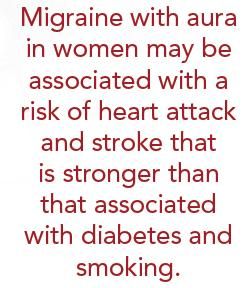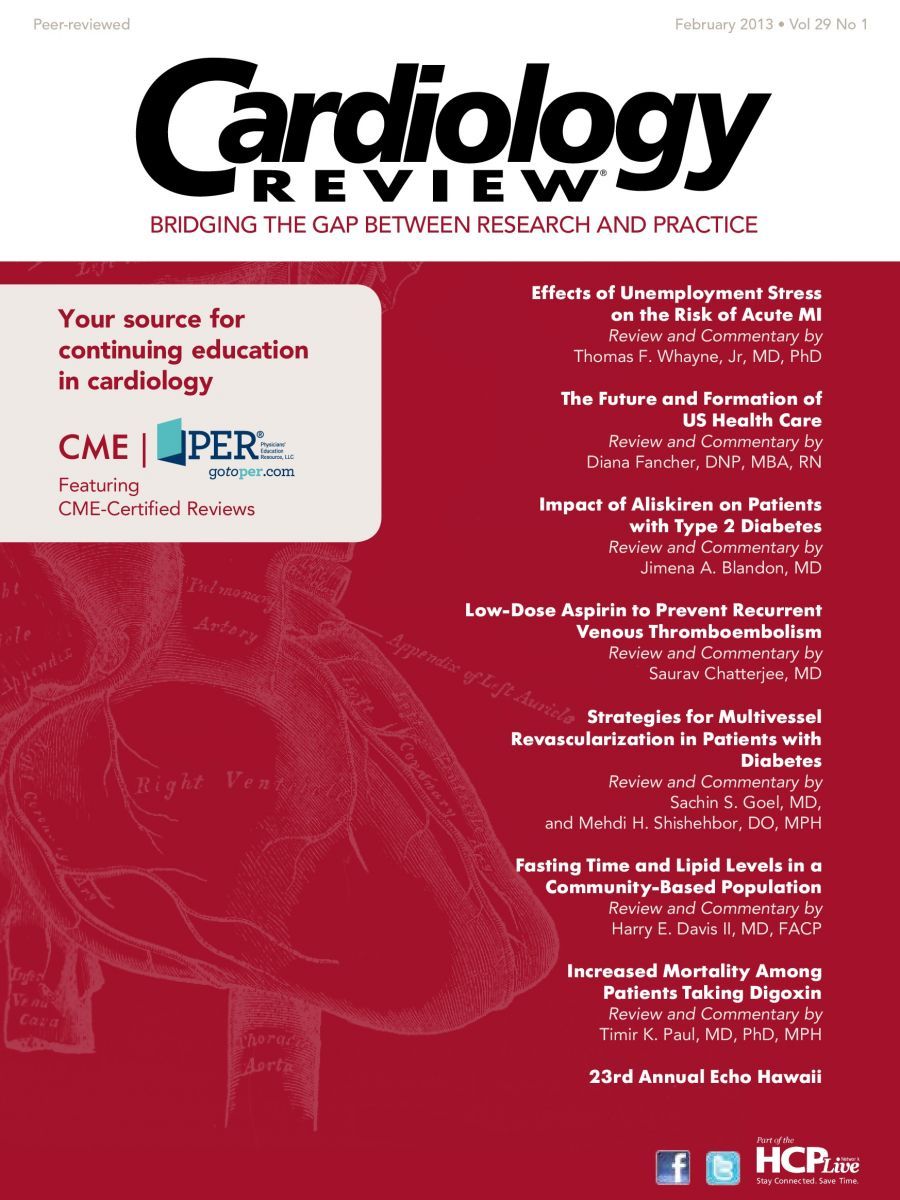What Your Patients Are Reading
Migrane with Aura in Women May Be Linked to MI, Blood Clots
Women who have migraine with aura may have a higher risk of heart attacks and blood clots, according to 2 recent studies to be presented at the annual meeting of the American Academy of Neurology in March.

The first study followed nearly 28,000 women in the ongoing Women’s Health Study, 1400 of whom had migraine with aura. After 15 years of follow-up, the study found that more than 1000 women had a heart attack, stroke, or died from cardiovascular causes. Only hypertension was a stronger predictor of cardiovascular problems, said lead author Tobias Kurth, MD, MSc, ScD, of the French National Institute of Health and Medical Research in Bordeaux, France, and Brigham and Women’s Hospital in Boston. The risk associated with migraine with aura was even stronger than that associated with diabetes, smoking, obesity, and family history of heart disease.
It is not known if controlling migraines would reduce the risk for heart disease, and no causeand- effect relationship between migraine with aura and cardiovascular problems has been demonstrated. Noah Rosen, MD, Director of the Headache Center at Cushing Neuroscience Institute at North Shore-Long Island Jewish Health System in Manhasset, NY, said the study raises the concern that migraine with aura is more of a risk than diabetes, and that it might change the way risk is stratified based on a history of migraine. Dr Rosen didn’t think migraine control would reduce cardiovascular risk because migraine is likely a genetic phenomenon and is not a modifiable risk factor. “It makes sense to control the other risk factors for cardiovascular disease,” he said.
A second study that will also be presented at the neurology meeting found that women with migraine with aura who take hormonal contraceptives have a higher risk of blood clots than women with migraine without aura. The study, which followed 145,000 women who used hormonal contraceptives, shows that 7.6% of the women with migraine with aura who used a newer-generation hormonal contraceptive that combines estrogen and progestin had deep vein thrombosis, compared with 6.3% of women with migraine without aura.
